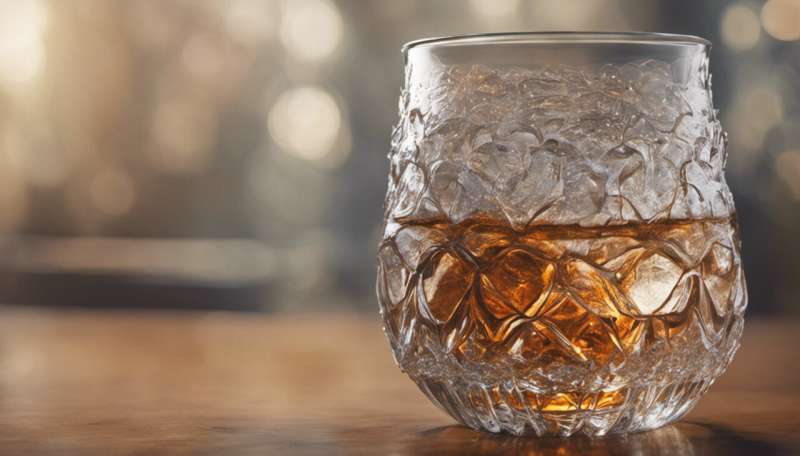Is cutting back your drinking worth a shot?

As one drunk ghost once said to another, it’s time to talk about the boos.
If you’re in your 20s or 30s, you might have already considered cutting down your alcohol consumption. Or maybe this is the first time you’ve thought about it.
Either way, you clicked on this article for a reason. So, how’s your drinking?
In vino veritas
Whether you see it as an intrinsic part of Australian culture or something more dastardly, Australians over 15 years old drink 9.51 liters of pure alcohol per year per person. That puts us well above average worldwide consumption.
But Australian drinking has been dropping by generation. Teenagers are less likely to drink than their parents were at their age—and being in your 20s or 30s makes you most vulnerable to binge drinking.
(These are, of course, self-reported surveys, so the figures depend on how truthful we’re all being!).
Performer Bonnie Davies quit drinking to improve her exercise regime.
“I do weight training. I’d do well during the week but found, if I had a big night out on the weekend, I’d miss training.”
She says she had to overcome questions about her sobriety.
“Sometimes when you say you don’t drink alcohol, people take it as a personal attack or judgment of their choices.”
Lockdown liquor
The COVID-19 pandemic has affected our drinking too.
Alcohol suppliers reported 6.8% less wine and 68% less cider sold in April 2020 than the previous year.
An Australian National University poll in 2020 found 27% of us said we were drinking less, while 20% were drinking more.
Women were more likely to increase compared to men. Men were more likely to increase drinking due to boredom, whereas women drank more because of stress.
But we won’t know the full story of our pandemic drinking habits for years.
Friends with beverages
Sarah Rusbatch is a life coach who recently founded the Free Spirit Drink Co. She quit drinking herself in 2018. She wanted more alcohol-free drinks like she had seen in the United Kingdom.
She was blown away by how quickly people began ordering.
“We went from 12 products to over 100 in 3 months,” she says.
Part of the reason Perthians were so quick to clamber to alcohol-free drinks might be the social expectation for drinking.
Bonnie moved to sober drinks after quitting. It was a way for her to enjoy a night out without being stuck with soda.
“Just because I don’t drink alcohol doesn’t mean I have the taste buds of a 12-year-old.”
In fact, the younger you are, the more likely social pressures are to affect your drinking habits.
Rosé research
Director of the National Drug Research Institute Professor Simon Lenton explains we often have misconceptions about reducing drinking.
“Many people believe the only problems people can have with drinking are alcoholism or alcohol dependence. Most people who have a drinking problem aren’t alcoholics,” says Simon.
Anti-drinking campaigns have often focused on teaching young people the risks. In fact, most people in their 20s and 30s are probably well informed of drinking risks.
They might even have family members who have dealt with them.
But for its risks, young Australians are also keenly aware of benefits. Alcohol can make you more relaxed and social.
“There are two common reasons people use alcohol—to enhance positive experiences or deal with negative ones. Part of people getting in charge of their drinking is really understanding, well, what are the reasons that they’re drinking in the way that they’re doing it?” says Simon.
Musician Alistair Peel chose to cut back instead of completely quitting.
“For me, it was considering the long term. It was robbing me financially, and I was losing days of my life to recovery,” he says.
“Now, once a month, I have a beer while watching a movie. I haven’t been drunk in 3 years.”
So here’s how you can cut down your drinking.
Make an action plan
Write down what the benefits and costs of your drinking are. If it’s costing more than you’re getting, it might be time to cut back.
Decide how much you want to drink, if at all, and how you’ll hold yourself to that. It could be only taking a set amount of money to the pub, measuring your drinks or even just switching to a lower percentage alcohol.
Decide how you’ll manage your drinking in social situations. What will you tell your friends? Do you have supportive people around you to rely on or will you need some excuses on hand to avoid being the odd one out in a social setting?
Source: Read Full Article
